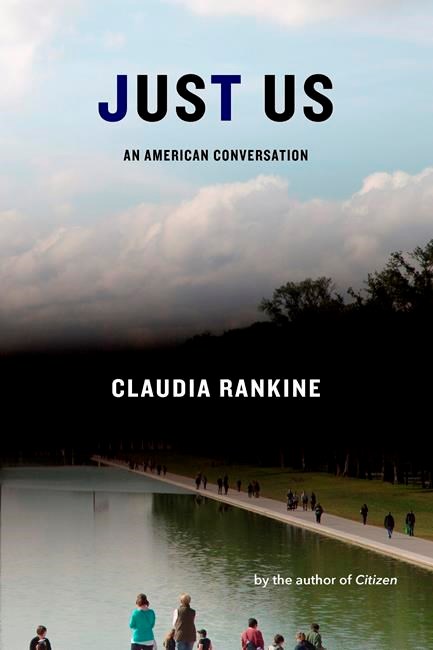“Just Us: An American Conversation,” by Claudia Rankine (Graywolf Press)
The African American man whose beating by Los Angeles police ignited civil upheaval in 1992 famously said later: “Can’t we all just get along?”
The answer to Rodney King’s question, which has taken on renewed importance these past months: Not yet.
And as readers learn in “Just Us: An American Conversation,” by Yale University professor Claudia Rankine — an unusual mix of essays, narratives, poems, pictures and musings — we have wide bridges of understanding to build.
Rankine has emerged as one of America’s foremost scholars on racial justice. (The book title, “Just Us” is meant to also invoke the word “justice.”) Among other places, Rankine is quoted in Layla Saad’s “me and white supremacy,” published earlier this year and now a New York Times bestseller.
How we will solve our national racial conundrum emerges in both books as more complicated than Rodney King envisioned. Saad presents a multiple-step plan for acknowledging and treating racism; Rankine offers compelling stories that illuminate, often through conversations with white people, how they have benefited from their skin tone since birth.
Some of these talks are emotionally painful. A seatmate on a long flight later wrote to Rankine that while he told her on the trip that he “didn’t notice much tension between the Black kids and the white kids in our town,” that it was “not that I didn’t notice it so much I wanted to forget it.”
Justice ignored, though, really is justice denied and never forgotten.
This much seems certain: We delay our day of racial reckoning at our national peril. Recently, the New York Times reported that President Trump
Rankine sees it differently. “The more you know, the more possible it is for us to exist in the same reality,” she said.
It’s impossible to read Rankine and Saad’s books and not conclude that we must address, as Rankine writes, the elaborate “set of assumptions, privileges and benefits that accompany the status of being white.” For example, a white person typically doesn’t have to fear that being pulled over by a police officer could end up as a racial confrontation. A Black person does.
To these and other truths of a past we have avoided reckoning, Rankine will be helping America understand itself, one conversation at a time.
Jeff Rowe, The Associated Press



